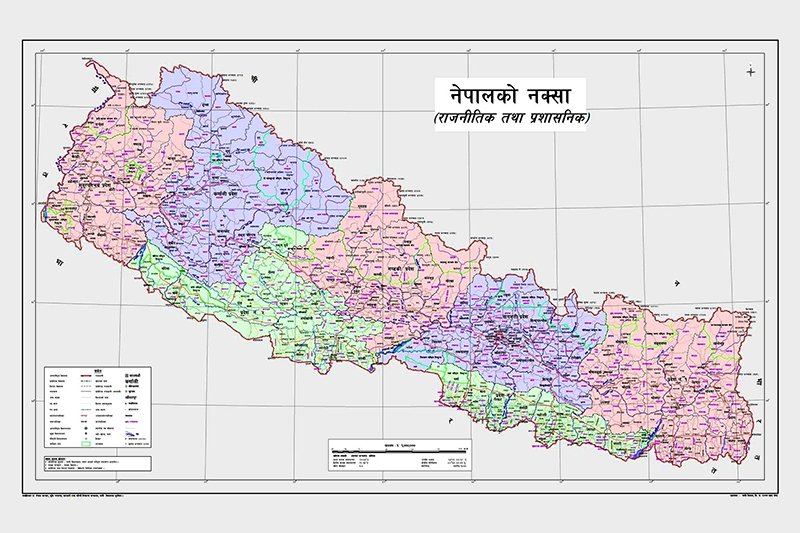
Know About Nepal
Know About Nepal
Nepal, officially the Federal Democratic Republic of Nepal is one of the richest countries in the world in terms of natural beauty due to its unique geographical position and latitudinal variation. The elevation of the country ranges from 60m above sea level to the highest point on earth, Mt. Everest at 8,848m, all within a distance of 150 km with climatic conditions ranging from subtropical to arctic. This wild variation fosters an incredible variety of ecosystems, the greatest mountain range on earth, thick tropical jungles teeming with a wealth of wildlife, thundering rivers, forested hill, and frozen valleys.
Within this spectacular geography are some of the richest cultures of Himalayan heritage. Nepal, home of Mt. Everest is also home to some 28.58 million people belonging to 125 ethnic groups who speak over 123 different languages, most living rural lives in their own little worlds, along the length of the Himalayas. The best way to explore the exotic Himalayan nature and culture of Nepal is by walking through these villages and meeting the charming people.
We invite you to: Meet the lovely people of rural Nepal, share a meal with them, stay at their homes as family guests, taste their local drink, and see them carry on with life graciously. In addition to the heartwarming hospitality, you will also witness some of the most spectacular views of the mountain landscapes or heritage sites along the way. Visit rural Nepal to know the real Nepal.
Visit these rural parts of Nepal, not only takes you through pristine landscapes and colorful mountain cultures, but it also gives you a chance to educate and empower the local community and be a part of their development process. Money spent in these areas contributes directly to the local livelihood. In the 1950s, Nepal opened its doors to tourists and has received millions of visitors since then. However, much of Nepal is still the Shangri-la that travelers long to experience. Therefore, with the aim of showcasing new areas and promoting and developing indigenous people and culture, a new approach to tourism, based on sustainable development has been initiated by Nepal. Community-based tourism is also being initiated in other parts of South Asia as a tool for sustainable development.
We are pleased to extend our warm hospitality and hope your stay in Nepal is a memorable one. If you have any queries or comments, please feel free to contact us at the Nepal Tourism Board. We recommend that tourists avail services from registered agencies only.
- Blog – Things not to miss in Pokhara
- Blog – Things you can do in Kathmandu
- Blog- Local Shopping in Nepal
- Blog – Adventure activities you can do in Nepal
- Blog- Things you can do in Chitwan National Park
- Blog- What to pack for Nepal Trip
- Blog- The Best time to travel in Nepal
- Blog- Must-try food and best place to eat in Nepal
- Blog- Nepal local currency and ATM facilities
- Blog- Accommodation facilities in Nepal
People
Nepal has a population of about 28.58 million people of different races and ethnic groups living in different regions with diverse cultures, languages, and dialects. The Gurung and Magar live mainly in the west. The Sherpa, Tamang, Rai, Limbu, and Sunwar inhabit the slopes and valleys of the eastern mid-hills. The Newar constitutes an important ethnic group of the capital Kathmandu Valley. There are Tharu, Yadava, Satar, Rajvanshi, and Dhimal in the Terai region. The Brahmin, Chhetri, Thakuri, and other groups are generally spread over all parts of Nepal. The different cultures of this Himalayan country reflect the harmonious blending of Hinduism and Buddhism.
Geography
Nepal, a sovereign independent country, is bound in the north by the Tibetan Autonomous Region of the People’s Republic of China and in the east, south, and west by India. The Length of Nepal is 885 km east-west and its breadth varies from 145-241 km north-south. The country can be divided into three main geographical regions.
History
Nepal has always been an independent and sovereign country with glorious history, culture, and tradition that dates back to times immemorial. Before the campaign for national integration was launched by King Prithvi Narayan Shah the Great, Kathmandu Valley was ruled by the Malla Kings, whose contribution to Nepali art and culture is enormous. In 1768 A.D., the Shah dynasty ascended the throne of unified Nepal.
Nepal at a fact
| Area | 141,181 sq.km |
| Geography | Situated between China in the north and Indian in the east, west & South |
| Capital | Kathmandu |
| Population | Approx 30.00 million |
| People | Nepal has more than 125 ethnic groups and 123 spoken languages |
| Language | Nepali is the national language. English is widely understood by travel trade people |
| Currency | Nepali Rupee (NPR) |
For more information please contact: Golden Nepal Holidays Pvt. Ltd. Kathmandu, Nepal Cell: +977-9849 855 872 | +977-980 8595985 WhatsApp No.+977-9849855872 Email: sales.goldennepalholidays@gmail.com

